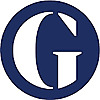The organisers behind the weekly pro-Palestine protests have criticised New South Wales Police for their decision to apply to the state’s supreme court to prevent two pro-Palestine protests from going ahead on 6 and 7 October.
Palestine Action Group (PAG) had informed police of the protests and submitted the required paperwork request, known as form 1, for both.
But after a meeting on Tuesday morning, police decided they were “not satisfied that the protest could proceed safely”, and have signalled they will be applying to prohibit both assemblies.
Amal Naser, spokesperson for PAG, said the group “unequivocally opposes this attempt to silence protests” and that the application was an “attack on fundamental democratic rights”.
“We intend on defending our right to protest and are determined to continue standing for justice for Palestine and Lebanon.”
In a statement, a police spokesperson said they recognised the “rights of individuals and groups” to exercise their free speech, but said they would be fighting to prevent the protests regardless.
“The NSW police force is aware of upcoming planned protest activity in Sydney on Sunday 6 October 2024 and Monday 7 October 2024.
“Officers from Operation Shelter have conducted negotiations with protest organisers, who did submit a form 1 for each proposed public assembly, but are not satisfied that the protest can proceed safely.”
“Accordingly, the commissioner has decided to apply to the NSW supreme court to prohibit the two assemblies.”
“The NSW police force recognises and supports the rights of individuals and groups to exercise their rights of free speech and peaceful assembly; however, the first priority for the NSW police force is the safety of the participants and the wider community.”
NSW premier Chris Minns said he “fully supported the decision”.
“Police have made this decision about the form 1 in line with crowd management and safety.
“We fully support the decision. Our priority must be community safety.”
“It’s our responsibility to work together to ensure we keep this cohesive, harmonious, safe community that we have in New South Wales.”
The decision comes after weekend protests sparked a war of words between opposition leader Peter Dutton and Labor, with home affairs minister Tony Burke accusing the opposition leader of “raising the temperature” of public debate over conflict in the Middle East.
Dutton had earlier this week suggested parliament should be recalled to enact new anti-terror legislation that would prohibit people from holding the Hezbollah flag, after people were spotted with the group’s imagery at the protest on Sunday.
The protest on Sunday focused on Israel’s strikes on Lebanon. Lebanon’s health ministry said on Sunday that more than 1,000 Lebanese have been killed and 6,000 wounded in the past two weeks, without saying how many were civilians. The government said 1 million people – a fifth of the population – have fled their homes.
Burke rejected Dutton’s demand, saying federal law supported by both parties was already in force, with police and authorities investigating the rallies.
He claimed Dutton wanted to “throw more kerosene on the fire” of the public mood around the widening Middle East conflict.
“I’ve got very strong views against hate speech and hate symbols, very strong views, and I don’t want the anger and hatred from around the world being imported into Australia,” Burke told Radio National on Tuesday.
“With Peter Dutton, it remains the case that no matter how many times our security agencies say we need to lower the temperature in Australia, he wants to raise the temperature every single time.”
The Australian federal police confirmed on Monday that it was investigating at least six reports of alleged crimes from their Victorian counterparts involving symbols and chants which are prohibited under federal hate speech law.
More than 1,200, mostly civilians, died on 7 October. Of the 250 abducted that day by Hamas, half were released in a short-lived ceasefire in November and half of the remainder are thought to be dead. No one knows how many died in Friday’s massive strike in southern Beirut.
More than 41,000 have been killed in Gaza, mostly civilians, one in 55 of the pre-war population. More than 700 have died in Lebanon in the recent wave of Israeli attacks, including the leader of Hezbollah, Hassan Nasrallah.

 By The Guardian (World News) | Created at 2024-10-01 11:25:12 | Updated at 2024-10-01 13:43:41
2 hours ago
By The Guardian (World News) | Created at 2024-10-01 11:25:12 | Updated at 2024-10-01 13:43:41
2 hours ago



